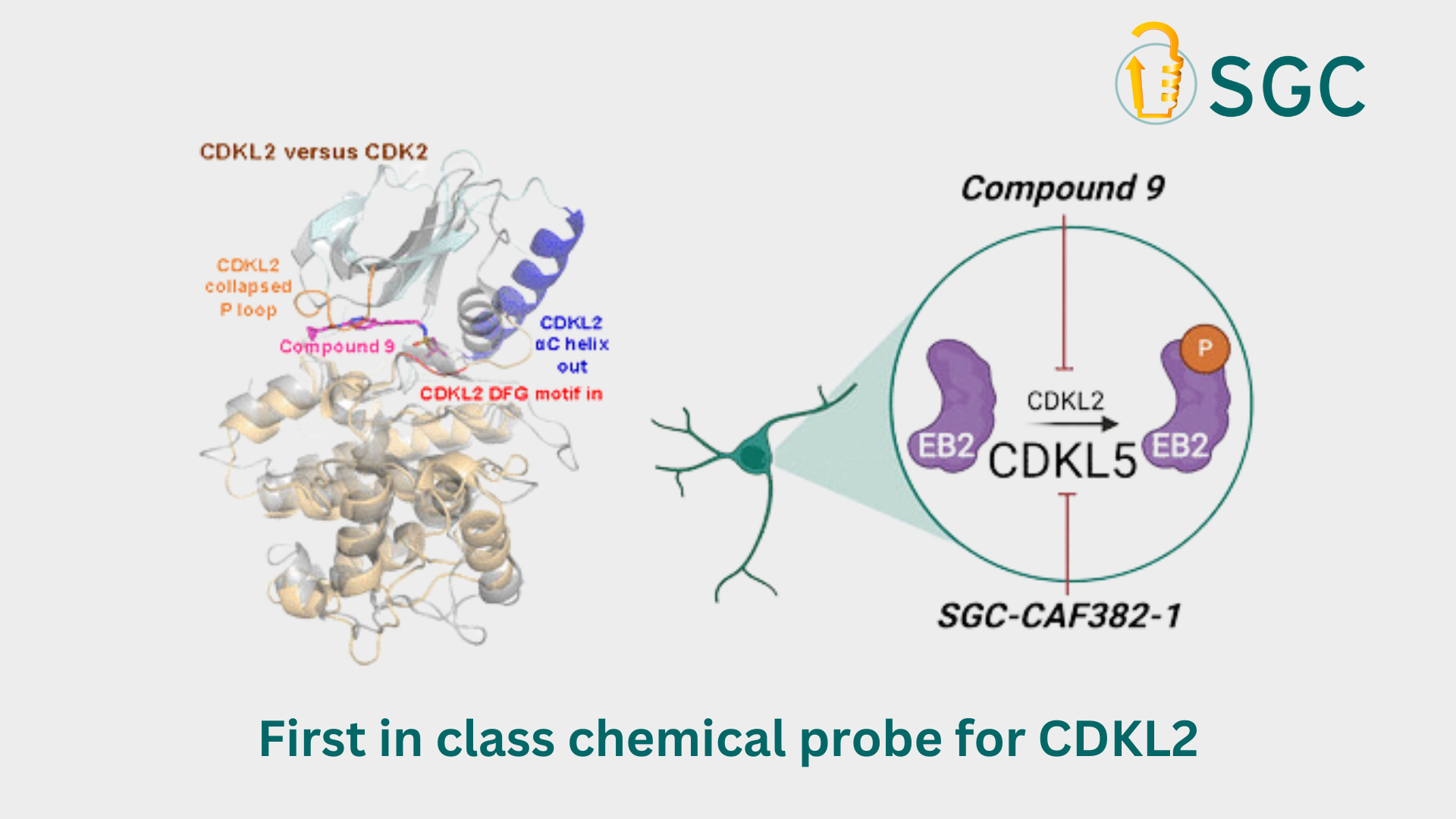
A New Chemical Probe Sheds Light on CDKL2
While some kinases have been the focus of extensive drug discovery campaigns, others remain largely unexplored. These "understudied" kinases have received significantly less attention, leaving their functions poorly annotated in scientific literature. Cyclin-Dependent Kinase-Like 2 (CDKL2) is one such kinase, with no chemical probes previously developed to facilitate its study. This was set to change with a successful collaboration between Alison Axtman at SGC-UNC and the Bullock group at the Centre for Medicines Discovery at the University of Oxford. Together, they have developed the first chemical probe for CDKL2, providing researchers with a powerful new tool to probe CDKL2-mediated biology.
The Importance of Chemical Probes
Chemical probes are essential chemical tools to study proteins that are not well-characterized. These small molecules can selectively bind to and modulate the activity of specific proteins, allowing scientists to investigate their functions and roles in various biological processes. Unlike genetic approaches, chemical probes offer precise temporal control and can be applied or removed as needed, making them ideal for studying dynamic cellular events. By using these probes, researchers can gain insights into how proteins contribute to health and disease, potentially paving the way for new therapeutic strategies.
CDKL2: A Case Study in Understudied Proteins
CDKL2 is part of the CDKL family, a group of serine/threonine kinases that have remained relatively uncharted territory in biomedical research. Known to play a role in cancer and development, CDKL2’s specific functions and mechanisms have been challenging to pin down due to the lack of selective molecular tools to target this kinase. One of the significant hurdles in studying CDKL2 has been its structural uniqueness. While researchers have solved the structures of CDKL family members, revealing characteristics of active kinases that set CDKL2 apart, compounds previously co-crystallized with CDKL2 turned out to be lacking specificity.
Recognizing the need for a potent and selective small molecule inhibitor, the researchers set out to develop a chemical probe specifically targeting CDKL2. "We knew that understanding CDKL2 could have significant implications for various diseases, but without a tool to study it, we were essentially working in the dark.", explains Alison Axtman, Principal Investigator at SGC who led the effort.
This endeavor was not without its challenges. The team had to meticulously design a molecule that could bind selectively to CDKL2, avoiding off-target effects on other kinases. Their efforts led them to review kinome-wide screening data, identifying acylaminoindazoles as a promising chemical series with robust CDKL2 binding affinity.
“Analyses of binding and kinome-wide selectivity data for acylaminoindazoles enabled the selection of our compound as a CDKL2 chemical probe. This compound demonstrated inhibition of CDKL2 enzymatic activity in cell-free assays and nearly equivalent engagement of CDKL2 in cells.”, says Frances Bashore, Principal Investigator at the SGC and first author of the publication.
Their efforts led to the development of the first-in-class chemical probe for CDKL2 marking a significant milestone in the study of understudied kinases. Previously, the SGC researchers have developed two high-quality chemical probes for CDKL5, another understudied kinase in the CDKL family. As of now, these remain the only high-quality chemical probes up to date.
As researchers begin to use these probes to uncover the functions and interactions of the proteins of the CDKL family, we can expect a wave of discoveries that will deepen our understanding of cellular biology and open new avenues for therapeutic development.
For more details, you can read the full publication here.
For more information about the chemical probe to study CDKL2 visit our overview page: https://www.thesgc.org/chemical-probes/sgc-cdkl2aak1bmp2k-1
